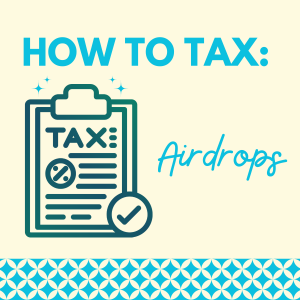Table of Contents
Do you have unpaid Crypto taxes?
The UK government has recently intensified its efforts to regulate unpaid crypto taxes. It is encouraging users to voluntarily declare capital gains or income related to digital assets such as Bitcoin, NFTs, and utility tokens. The Treasury has advised crypto users in the UK to report their gains from digital currencies to avoid potential penalties. You can read more about this here.

UK’s Crypto Tax Regulations Undergo Changes
The UK Treasury has announced its intention to simplify tax compliance within the rapidly expanding digital asset sector. As a result, crypto users are required to closely examine their earnings from this asset class. The UK government has provided a 30-day window for crypto enthusiasts to declare any unsettled digital asset taxes. Non-compliance with this deadline could result in punitive measures, including actions taken by the Treasury to recover unpaid amounts.
Updated FCA Regulations
In response to recent legislative changes affecting crypto promotions targeting UK consumers, the Financial Conduct Authority has released updated guidance. This guidance is designed to navigate crypto asset firms through the evolving marketing regulations. These rules aim to align crypto marketing regulations with those governing high-risk investments, ensuring that consumers have a clear understanding of the risks associated with crypto investments.
Understanding Your Tax Obligations
The number of years you need to disclose depends on why you have not paid the correct amount of tax before. You must decide whether this was not paid:
*Despite taking reasonable care
*Because you did not take care
*Because it was something you did deliberately
If you’ve taken reasonable care, you’ll only have to pay what you owe for 4 years if you took care to make sure your tax affairs were right but still did not pay enough.
If you did not take care, you must pay HMRC what you owe for a maximum of 6 years.
If you have deliberately not paid enough tax, you will have to pay what you owe for a maximum of 20 years. Deliberately means that you knew you owed tax but chose not to tell HMRC or that you knew the figures on your tax return were wrong when you submitted it.
Interest and Penalties

Beware the Crypto Tax man!
Penalty for Inaccuracy:
In the event of an inaccuracy in the return or other documents you submit, HMRC reserve the right to impose a penalty. This penalty may be applied if the inaccuracy leads to unpaid, understated, or over-claimed taxes and if the inaccuracy is attributed to careless, deliberate, or deliberately concealed behaviours.
If you delegate tasks to someone else, such as an employee or adviser, it is your responsibility to take all necessary measures to prevent inaccuracies. Failure to do so may result in the imposition of a penalty.
Exemption from Penalty for Inaccuracy:
No penalty will be charged for an inaccuracy if you demonstrated reasonable care in attempting to ensure accuracy, even if the final return or document is still incorrect. Ways to demonstrate reasonable care include:
*Maintaining accurate records.
*Seeking clarification from a tax adviser or consulting with us if there is uncertainty about any aspect.
Prompted Vs Unprompted Disclosure
The Compliance checks for penalties of inaccuracies in returns or documents (CC/FS7a) factsheet hasn’t been updated since February 2022, though HMRC still links to this document.
Though nothing has been stated about prompted disclosures, where HMRC contacts you regarding outstanding Crypto gains which haven’t been taxed. One can assume that this probably isn’t far off. Especially when you consider the actions taken with the ‘Let Property Campaign’.
The Let Property Campaign (LPC) provides an opportunity for landlords who owe tax through letting out residential property, either in the UK or abroad, to get up to date with their tax affairs in a simple way and take advantage of the best possible terms. This includes landlords with multiple properties, single rentals, specialist landlords with student or workforce rentals, holiday lettings, and those who live abroad or intend to live abroad for more than 6 months and rent out a property in the UK.
Prompted Disclosure: This occurs when HMRC initiates contact with you, necessitating that you make a disclosure. In such cases, HMRC identifies a liability, typically involving unpaid taxes, and requests specific information from you. This form of disclosure is often a result of HMRC’s investigation or examination of your financial records.
Unprompted Disclosure: This involves taking the initiative to approach HMRC and voluntarily declare any unpaid taxes or discrepancies in your financial affairs. This proactive approach demonstrates your commitment to complying with tax regulations and rectifying any unintentional oversights. Opting for an unprompted disclosure significantly reduces the likelihood of facing criminal charges or severe penalties.
Penalties
It’s important to note that the penalties for inaccuracies can vary depending on whether the disclosure was prompted or unprompted.
These are the current penalties that HMRC have in place for both prompted and unprompted disclosures, we assume that these are also relevant for Crypto disclosures:
| Type of Behaviour | Unprompted Disclosure | Prompted Disclosure |
| Reasonable Care | No Penalty | No Penalty |
| Careless | 0% to 30% | 15% to 30% |
| Deliberate | 20% to 70% | 35% to 70% |
| Deliberate and Concealed | 30% to 100% | 50% to 100% |
Reducing your penalty
The placement of the penalty within the penalty range is determined by the quality of disclosure, which includes the aspects of telling, helping, and giving. The extent of the reduction in the penalty is contingent upon the level of assistance provided:
Up to 30% reduction for “telling.”
Up to 40% reduction for “helping.”
Up to 30% reduction for “giving access to records.”
In evaluating the quality of disclosure, the duration taken to report the failure to notify is also taken into account. If the disclosure is delayed significantly, such as for a period of 3 years or more, the maximum reduction in penalty is typically limited to 10 percentage points above the minimum of the penalty range. Consequently, the taxpayer may not benefit from the lowest penalty percentage that is normally available.
Conclusion
The UK government’s approach to crypto taxation is a clear indication of the growing importance of digital assets in today’s economy. It also underscores the need for clear and comprehensive regulations to ensure fair and transparent dealings in the crypto market.
If you have traded Crypto and need some advice on your Crypto tax, you can arrange a free consultation by contacting us here : Crypto Accountant UK
We can help determine whether you need to file a return and get your taxes completed from start to finish. This includes getting you set up onto tax software to sorting transactions and getting your Capital Gains Tax (CGT) and income tax calculated. We take care of registering with HMRC to file a self-assessment tax return through to filing your tax returns.


